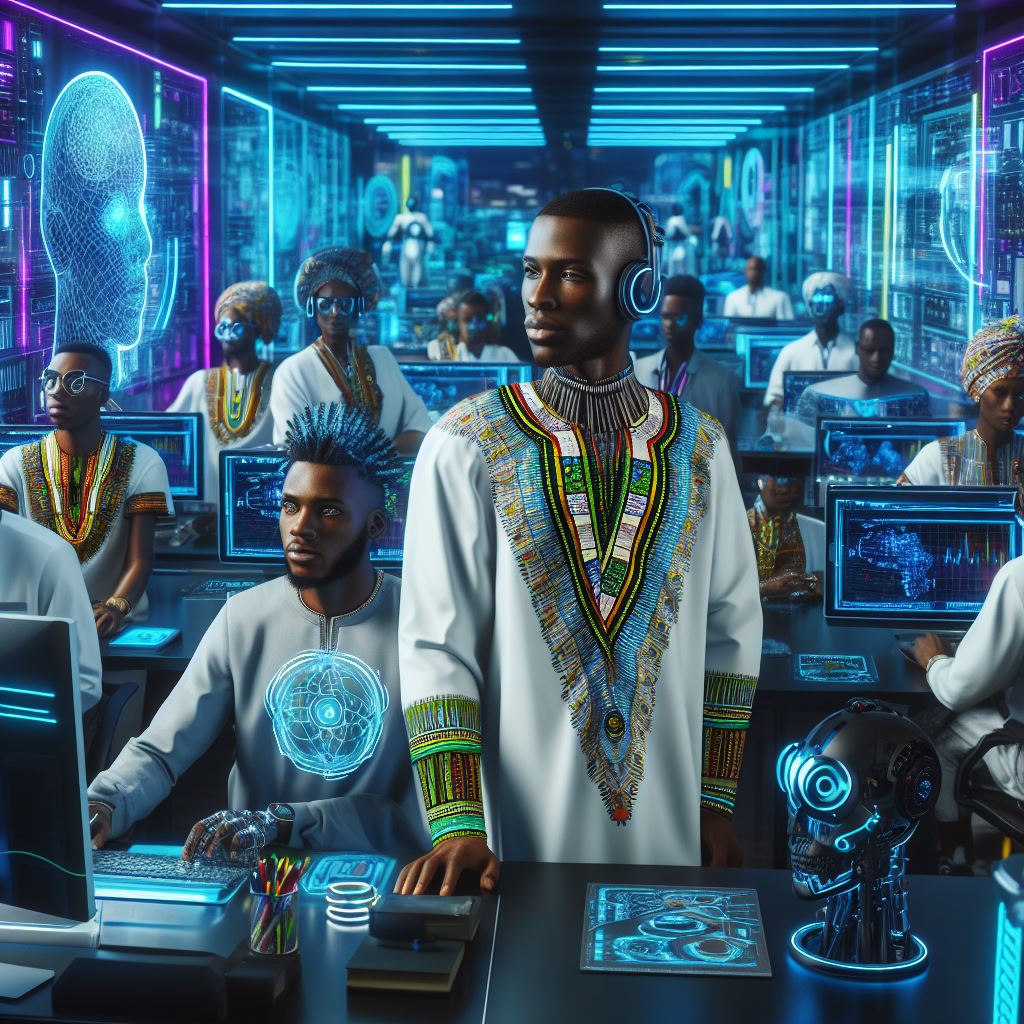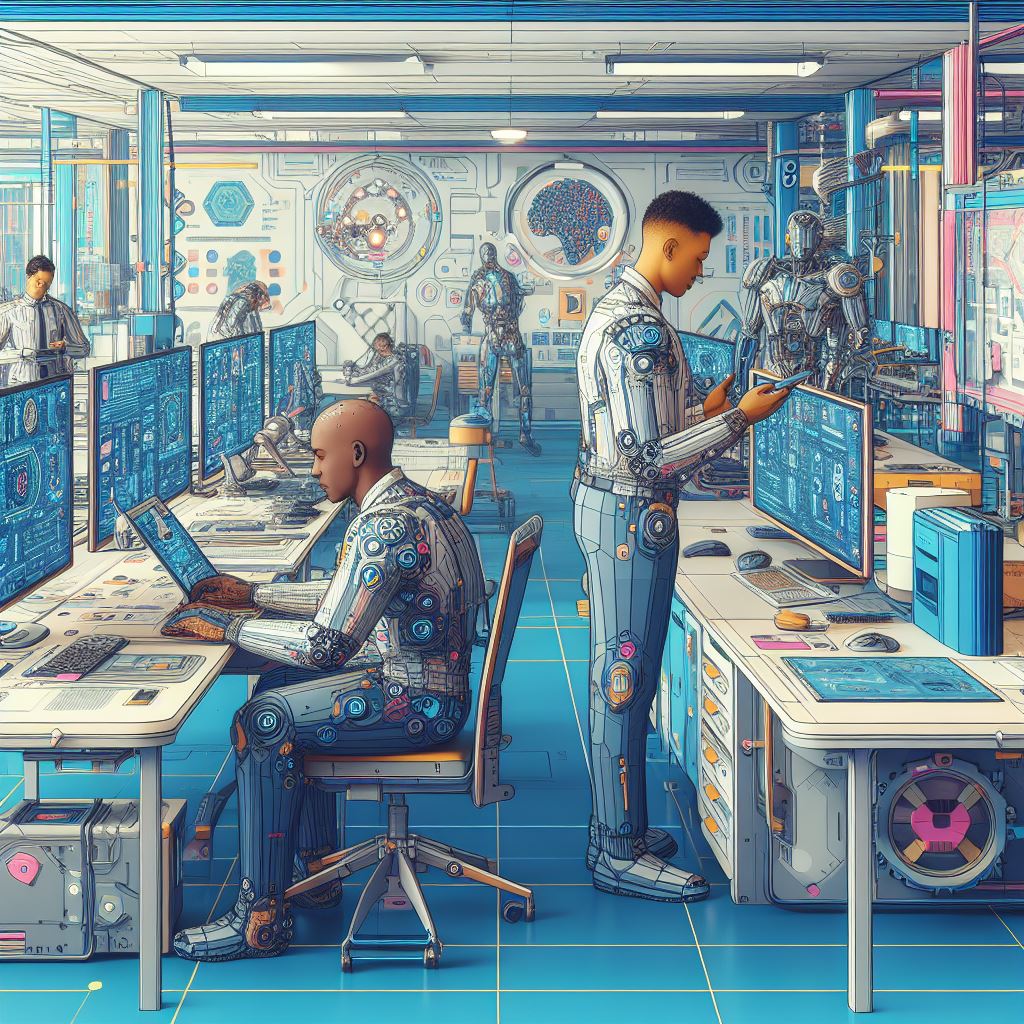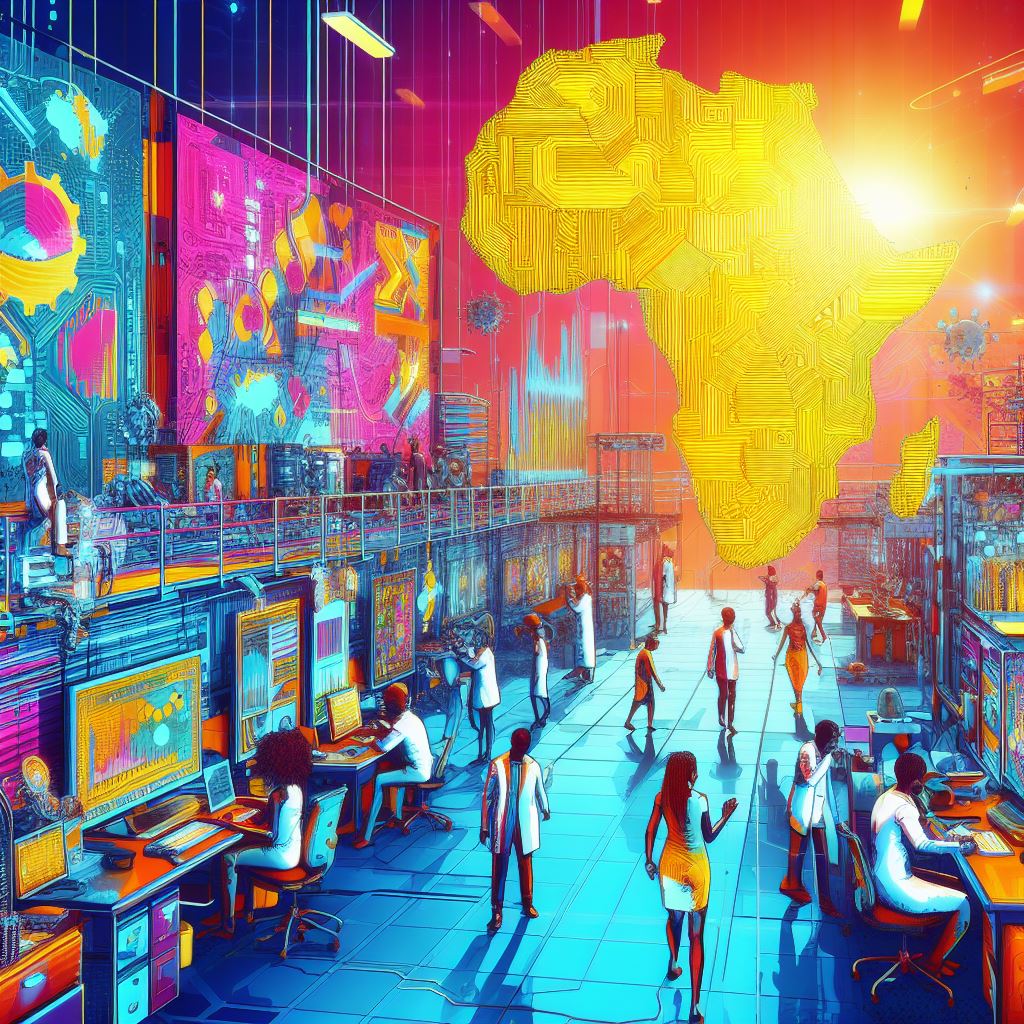By Scovian Lillian
Nairobi, Kenya:Although there are some implications and biases often debated about Artificial Intelligence, a promising hope for Africa in terms of solutions and talent that young people can leverage on through innovation to solve problems exists.
Artificial Intelligence (AI), being transformative can change societal lives by solving climate change problems for instance; flooding through early warning detection, carbon emissions, heat waves, storms and global warming among others.
These are the thoughts of Dr. Yossi Matias, Vice President Engineering & Research, at Google, and the founding Managing Director of Google Center in Israel.
Matias explains that there is a strong need to build talent across Africa for the young people especially in the education and health sectors to empower scholars to understand technology better. He emphasizes that better understanding of multiple machine language will help scaling up engineers for the next generation.
“I am more optimistic about AI opportunities in Africa and I think its exciting times for us and especially for Africa where we have a pool of talent and developers”, Yossi told Talkafrica.
 He adds, “AI can play an increasing role, in the past 7 years ago I realized that machine learning is going to change everything and what we have seen in the past few years is indeed transformation and this gives us hope to actually solve problems that previously seemed to be unsolvable using technology”.
He adds, “AI can play an increasing role, in the past 7 years ago I realized that machine learning is going to change everything and what we have seen in the past few years is indeed transformation and this gives us hope to actually solve problems that previously seemed to be unsolvable using technology”.
In Accra-Ghana for example, a team of researchers have used AI to identify buildings to assess people’s needs related to climate change depending on where they actually live. AI has also been used as an early system warning to detect floods in some African Countries, for example in Mozambique.
Matias believes that it is significant and critical to empower the next generation of researchers and teenagers for impactful AI in the society today for instance through sponsor supported startups and education.
 A state of AI report in Africa published in May this year by Strathmore University in Kenya notes that Artificial intelligence (AI) technologies will profoundly impact all areas of life that require human intellect and interaction in African countries. Businesses and institutions may employ AI, in particular, to personalize tasks, optimize processes, encourage innovations, and empower and supplement staff operations.
A state of AI report in Africa published in May this year by Strathmore University in Kenya notes that Artificial intelligence (AI) technologies will profoundly impact all areas of life that require human intellect and interaction in African countries. Businesses and institutions may employ AI, in particular, to personalize tasks, optimize processes, encourage innovations, and empower and supplement staff operations.
The report shows that Africa is already leveraging AI; for example, Togo is utilizing AI systems to distribute social funds; Zambia to counter disinformation and misinformation during the electioneering periods, and Kenya harnessing machine learning in agriculture and education.
For AI to work effectively in Africa, Matias says that it should be done properly with its implications in mind by reducing the negative biases. His sentiments are echoed by the report mentioned earlier.
It says that information technology and business leaders in Africa agree that stakeholders’ knowledge base on AI and Innovation must be improved in order to fully enjoy the benefits of AI technologies, meaning that national education systems and frameworks must be restructured to include digital literacy and training; thus, remote learning and intelligent tutoring systems with the help of AI may be used to provide quality education.
“We need to be bold and responsible whenever we start working on AI and technology right from the beginning with a focus on the many implication of AI to achieve unbiased societal benefits, for example a bias that AI can harm already marginalized groups of people”, says Matias.
 Other examples of biases are if AI system judgement can be trusted with data training, Ai being a threat to jobs and if AI will be a threat to humanity by surpassing human intelligence.
Other examples of biases are if AI system judgement can be trusted with data training, Ai being a threat to jobs and if AI will be a threat to humanity by surpassing human intelligence.
The report also highlights that universities must have a fundamental role in developing critical research that can inform policy and the public about Artificial Intelligence and Innovation.
“The next generation of AI practitioners ought to be taught by higher education institutions about the design of AI technologies and the societal implications of AI and innovation associated with the Fourth Industrial Revolution”, it says.
It furthers that keen focus should be placed on African scholars in promoting African experiences, expertise, and values in global debates and discussions around AI, adding that it is crucial to have input from African innovators, policymakers, and academics in AI conversations to ensure that research solutions are aligned with African needs and priorities.
However, there is unfortunately limited personnel and a lack of funding for African universities when it comes to their capacity in implementing AI and innovation research projects as per the report.
This has, in part, inhibited African scholars from participating in global platforms to share their experience with AI and innovation, hence the continent should accelerate research-led and knowledge transfer strategies at the university level and to ensure the inclusion of ethical and responsible use of AI subjects in computer science, information systems, machine learning, engineering, and AI-related courses.
Matias also accentuates on the need for partnerships and collaborations with universities, organizations and NGOs across Africa to bring out the actual positive impact of AI in the African continent.














